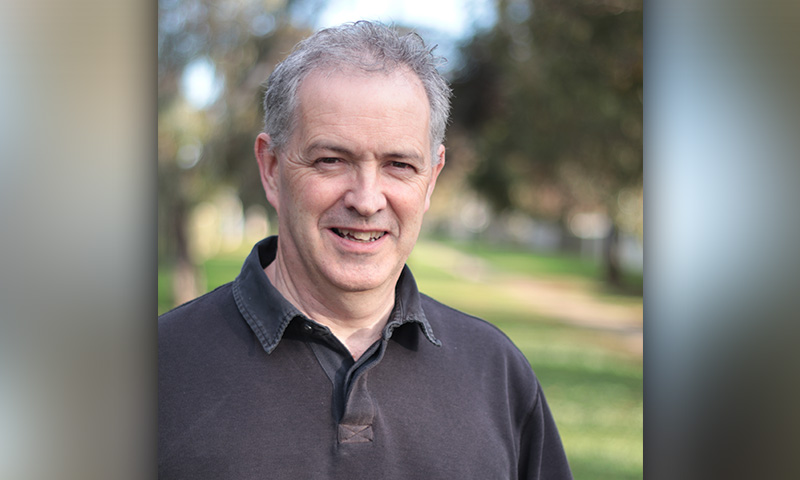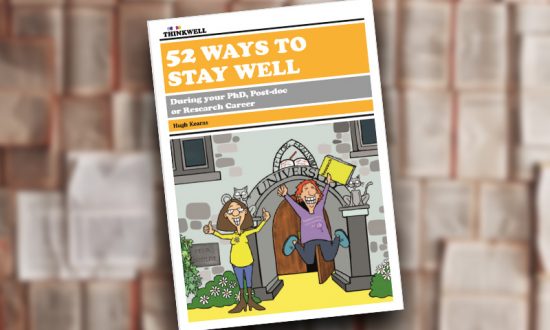Work-from-home regimes and social distancing are adding unforeseen new pressures to PhD candidates and researchers now having to complete their work in isolation – but a new book from Flinders University researcher Hugh Kearns offers smart practical tips on how to stay well and overcome obstacles while completing difficult research tasks.
Mr. Kearns’ timely new book – 52 Ways To Stay Well During Your Post-Doc, PhD or Research Career (Thinkwell Publications) – introduces an expansive set of tips and recommendations based on his 30 years of research work and lecturing in cognitive behavioral coaching and high performance in the fields of medicine and public health.
While the intended launch of this book at a major international conference this month has become a casualty of the COVID-19 social distancing restrictions, the publication is already having a strong commercial reception through online sales at ithinkwell.com.au – and one university in Ireland, where Mr. Kearns has done previous work, has bought a license to give the book to all its researchers and research students.

Mr. Kearns is also currently in demand hosting webinars on the topic of staying well while social distancing and researching. “The book is particularly relevant in the current times,” says Mr. Kearns. “Research has always been an isolating experience and unfortunately mental health issues are very common amongst PhD candidates. Social distancing makes this isolation more acute. This and the general anxiety in the world right now are not good for your mental health. PhD candidates need to put strategies in place to help them stay well in these difficult times.”
The book’s mix of psychology, motivational aids, health tips, workplace strategies, and practical advice are built on the methods used by thousands of researchers across the world that Mr. Kearns has worked with. In cataloging 52 tips that people have used to stay well during their PhD, post-doc or research career – one for each week of the year, as Mr. Kearns explains – the book recognizes that the demands of high-level research are significantly greater than many students anticipate.
“The commitment for a PhD is very different to other areas of education, requiring great flexibility in your work approach and time commitments, and being prepared to spend lengthy periods in isolation to process all the necessary work,” says Mr. Kearns. “The book spells out the reality of working in isolation.”
The book also highlights the uncertainty of research work – and that the process rides through many ups and downs before reaching a conclusion. This is something Mr. Kearns believes that not enough higher education students or early researchers have a strong enough grasp of.
“Despite all the attractions of a research career, many researchers get worn down by setbacks and challenges. So if you want to stay well, don’t leave it to chance. You need to look after yourself. There are certainly many things in research that are out of your control, such as the funding model, the review process and limited positions – but my book looks at some of the things that can be under your control.”




